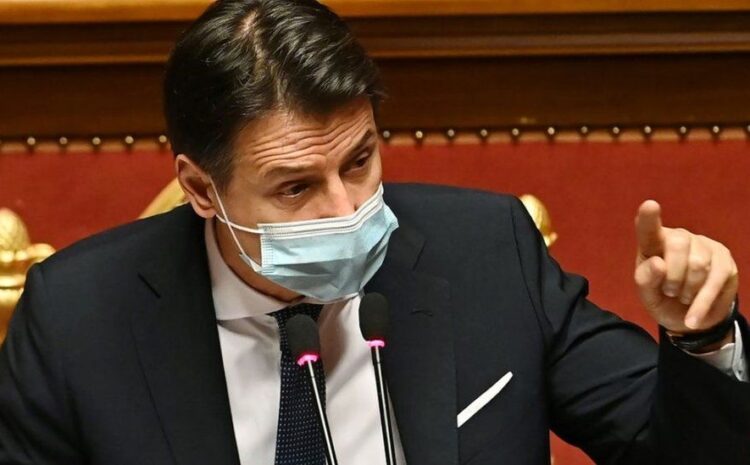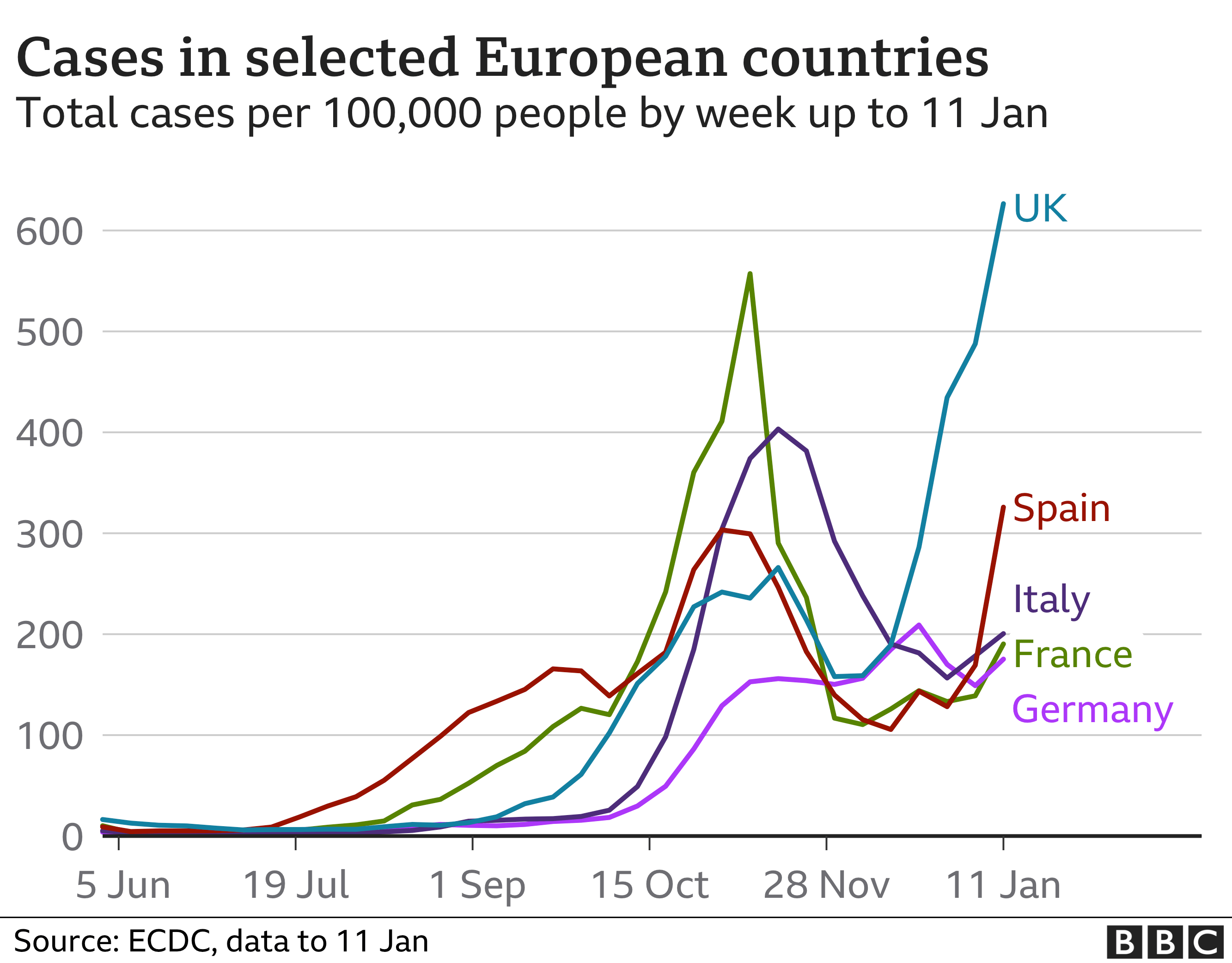
IMAGE COPYRIGHT AFP image caption Giuseppe Conte says political in-fighting risks making the crisis worse
Italy’s Prime Minister Giuseppe Conte has urged senators to back his government as it battles with the pandemic and faces a confidence vote which could prompt his resignation.
The upcoming Senate vote follows a vote in the Chamber of Deputies – the lower house – which he won by 321 to 259, securing an absolute majority.
Last week former PM Matteo Renzi pulled his party out of the ruling coalition over its handling of the pandemic.
That plunged the coalition into crisis.
Mr Conte only had a slim majority in the Senate even before Mr Renzi’s small, liberal Italia Viva party pulled out of the government.
The Senate vote result is expected some time after 19:00 (18:00 GMT) and it could leave Mr Conte short of a majority there. But if he wins the vote, even with no absolute majority (a majority of all the senators), he can stay in office.
Losing would force him to resign – but even then Italy could avoid a snap election, as President Sergio Mattarella could invite him to form a new coalition government.
In a speech to the Senate, Mr Conte said: “It’s very hard to govern in these conditions, with people who continuously place mines in our path and try to undermine the political balance patiently reached by the coalition”.
The law professor, who has led a centrist coalition since 2018, said it was vital for Italy to maintain political cohesion faced with the “historic challenge” of the pandemic.
Italy has recorded 82,554 deaths linked to coronavirus – the second-highest official toll in Europe after the UK. It has more than 25,000 patients in hospital with Covid-19.


“Our energies should be totally, always, focused on urgent responses to the crisis gripping the country,” Mr Conte told senators.
“Whereas with this, especially in the eyes of those citizens watching us, our energies appear dissipated in often sterile contradictions, totally incomprehensible for those who face the daily fear of illness, the spectre of poverty.”
More on Italy’s Covid crisis:
What’s the political row about?
Mr Renzi objects to Mr Conte’s plans for spending €209bn (£186bn; $254bn) of EU recovery funds – part of a €750bn EU rescue for the Covid crisis.
Mr Renzi wants investment in the digital economy and green energy, and rejects Mr Conte’s plan to let technocrats, rather than MPs, decide spending priorities.
Italy was the epicentre of the pandemic in Europe last March, and its tranche of the EU aid is the largest.
Mr Renzi’s liberal Italia Viva, formed in 2019, polls less than 3% currently, and surveys suggest that right-wing parties would come top in a snap election, were one to be called two years ahead of schedule.
